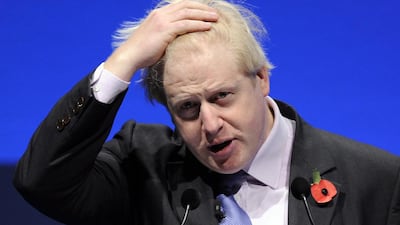In much of the world, respect for politicians is exceptionally low. A Pew Research Center poll last year found declining faith in political leadership across Europe (down to a fairly miserable 20 per cent in the Czech Republic), while another poll in Britain, by IPSOS Mori, showed the public thought that estate agents, bankers and, ahem, even journalists were more likely to tell the truth than the not-so-esteemed tribunes of the people.
This leaves an opening for populists, those who present themselves as a break with “politics as normal” and offer a usually plain-speaking alternative attractive to the voters. Think of Recep Tayyip Erdogan in Turkey, or Boris Johnson in the UK, Joko Widodo in Indonesia, Narendra Modi in India, the late Hugo Chavez and a host of others in South America.
At one level, the opportunity to vote for seemingly anti-establishment candidates is good for democracy – why shouldn’t people be able to cast their ballots to opt for someone fresh and new? These characters tend to be charismatic, winningly off-message, and very clearly standing against a status quo often seen as self-interested, self-satisfied and out of touch. (In the last case, often surprisingly so. See Hillary Clinton’s comment that she and her husband, former president Bill, were “dead broke” when they left the White House – to which most responded: “Not as we understand the term.”)
Insurgent populists can often justly claim that they are channelling desires that previous office-holders and parties have neglected. Prime minister, and now president-elect, Erdogan has given voice to the religious devotion of the majority that Ataturk’s state-imposed secularism had sought to deny from the establishment of modern Turkey. Another president-elect, Joko Widodo (popularly known as “Jokowi”), is the first Indonesian head of state to be unencumbered by any baggage from his country’s long decades of authoritarian rule.
Others have cleverly tapped into a general “none of the above” disenchantment. London’s Eton and Oxford-educated mayor, Boris Johnson, now all but a declared candidate for Conservative party leader, has used his air of amusing dishevelment and daringly-displayed erudition – no politician likes to be seen to be too clever – to persuade his legions of fans that his privileged background is no bar to his being more in tune with the man in the street.
But at another level there are many possible dangers. Populists can come to believe that their “purer” mandate from the people puts them above such trifles as boring constitutional niceties. Mr Erdogan – boosted, to be fair, by being directly elected rather than appointed by parliament – has already made it plain that he intends to test what was previously a fairly ceremonial role to the limits. His governments as prime minister have not hesitated to interfere with other supposed guarantors of state impartiality, notably the judiciary and the military. His country is increasingly no longer held up as an example of how religiously-inspired politics can coexist with a plural, secular democratic system.
In Russia, Vladimir Putin’s popularity cannot be doubted – even in elections in which vote-rigging was alleged, the question was over the scale, not the fact, of his and his party’s victories. But his attempts to address the Russian people’s perception of being humiliated internationally in the post-Soviet era have led to escalations almost universally regarded as fraught, and are likely to damage the domestic economy, however much his actions are applauded at home.
Eamon de Valera, the most dominant prime minister and then president in Ireland’s history since independence, was one such conviction populist. “If I wish to know what the Irish want,” he once declared, “I look into my own heart.” Impressively single-minded and visionary, perhaps; dangerously verging on the dictatorial and non-consultative would be another way of looking at it. And once a leader is on that trajectory, such disregard for the counsel of others can lead to extremities.
Libya’s Colonel Qaddafi was originally admired, not just at home but by Egypt’s President Nasser, who said, shortly before he died in 1970: “I rather like Gaddafi. He reminds me of myself when I was that age.” The colonel had only recently taken power. What followed is well-known.
But ultimately for populists to succeed, it means something has gone very badly wrong with the practice of government and opposition itself. Politicians are not all out for themselves. It is – it certainly should be – a noble calling, and for all its practitioners to be deemed “as bad as each other” weakens the foundations of even the rule of law itself. Once that faith is shaken, then constitutions can come to be seen as mere contingent documents, to be discarded at whim, and eras are ushered in where “nothing is permanent”, as Eric Trager, a fellow at the Washington Institute for Near East Policy, put it in an essay earlier this year.
Compromising in the national interest may not always be popular. Votes and seats can be won through intransigence, no matter that it paralyses government, as hard core Tea Party politicians have lamentably shown in the US. But politics can and should be the art, not of obstruction, of honourable compromise, as some American politicians still recognise.
Even the Tea Party favourite, Republican Senator Rand Paul, recently co-sponsored a criminal justice reform bill with the Democratic Senator Cory Booker. Such agreement is possible. Beware the populist who, through a purist desire for “a plague on all their houses”, cannot, and will not, countenance it.
Sholto Byrnes is a Doha-based commentator and consultant


